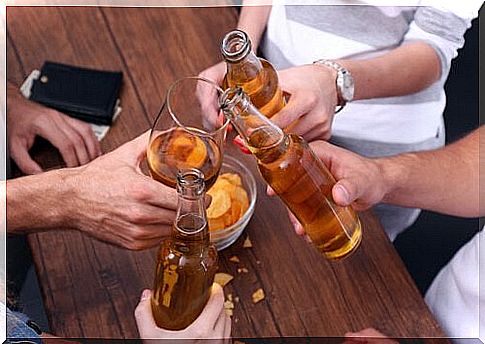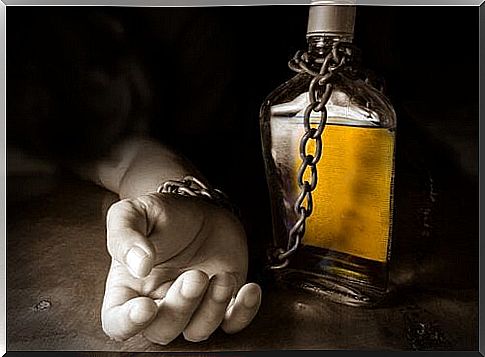The Thin Line Between Alcoholism And A Habit

Friday afternoon you leave the office and, as usual, you meet for a drink with friends. It’s a tradition and it almost feels like the only way to keep in touch. This afternoon, however, is different. One of your friends has news that surprises everyone. He has been diagnosed with alcoholism. Plus, this habit of meeting up for drinks every Friday is part of the problem.
This news hits you and your friends like a bomb. You think it might be a joke. But alas, it isn’t. It is a real problem and unfortunately a common problem. And also a problem that is difficult to understand. It’s hard to understand because you drink too. You also go to those appointments with your friends and you also participate in this habit. Yet you do not suffer from alcoholism. You are not an alcoholic. Or so you think…

Alcoholism or a habit?
Diagnostic classifications, such as the DSM-5, define alcoholism as “a set of behavioral and physical symptoms, including withdrawal, tolerance, and an intense need to consume.”
Within these criteria , they emphasize the frequency and recurrent consumption of alcohol as an essential part of the diagnosis. But can this repetitive consumption be seen as a habit? According to the Royal Spanish Academy, we should consider the sixth definition of the word. It defines a habit as “a situation of dependence on a particular drug”.
But is it habit itself that really generates the addiction? The answer is no. An addiction, in the case of alcoholism, is a disease that develops as a result of two factors. These factors include psychological, social and biological aspects. It turns a simple habit into an abusive consumption. In turn, this consumption modifies the cerebral structure and behavior of the individual in question.
This means that a combination of biological and social factors along with behavioral factors turns a habit into something more. It turns drinking with your friends into an addiction. And this is the most dangerous part: there are some factors that we can control ourselves, and others we cannot. This makes it so difficult to predict who, under the same circumstances, would develop an addiction and who would not.

Why do some people develop alcoholism and others don’t?
But how come, for example, in the group of friends we talked about earlier, one developed alcoholism and the rest did not? The factors that influence the development of an alcohol addiction can be summarized as:
Biological Factors
The biological factors that promote the development of alcoholism range from genetic heredity to the alteration of various neurotransmitters and cerebral structures stimulated by the habit of consumption, triggering even more rapid change in predisposed individuals.
Alcoholism is often found in different members within the same family. In 40-60% of all cases, the risk of suffering from alcoholism can be explained by genetic predisposition. In addition , the risk is three to four times greater for the children whose parents also suffer from it.
In terms of cerebral functions and neurotransmitters, research has shown that dopamine is involved in the early stages of addiction. This is because dopamine is associated with pleasure, as is the so-called cerebral reward system, mainly made up of the ventral tegmental area, among other structures.

Psychological Factors
The individual’s perception of his alcohol consumption and use can be very important. For example, if the person who developed the addiction in the group mentioned above was always the one who bragged about being the one who always drank the most, then he probably drank a lot more than his friends.
In addition to damaging his own health with this harmful habit, the habit gradually became uncontrollable and eventually turned into an addiction. A person’s pattern of behavior during adolescence, when this type of behavior begins, is therefore crucial. The attitude one has towards control and devaluation of the need for social validation are very important.
Social factors
The idea of drinking and the availability of alcohol in the society in which the individual lives are also very important factors. Alcoholism has been proven to be more prevalent in societies that allow more alcohol consumption.
As a result of all this, we can only conclude that the line between a habit and alcoholism is actually very thin. There are factors that we can control (behaviour) and other factors that we cannot influence (biological risk factors). So you have to be very careful and always drink alcohol in moderation. Or, even better, avoid consumption altogether.








